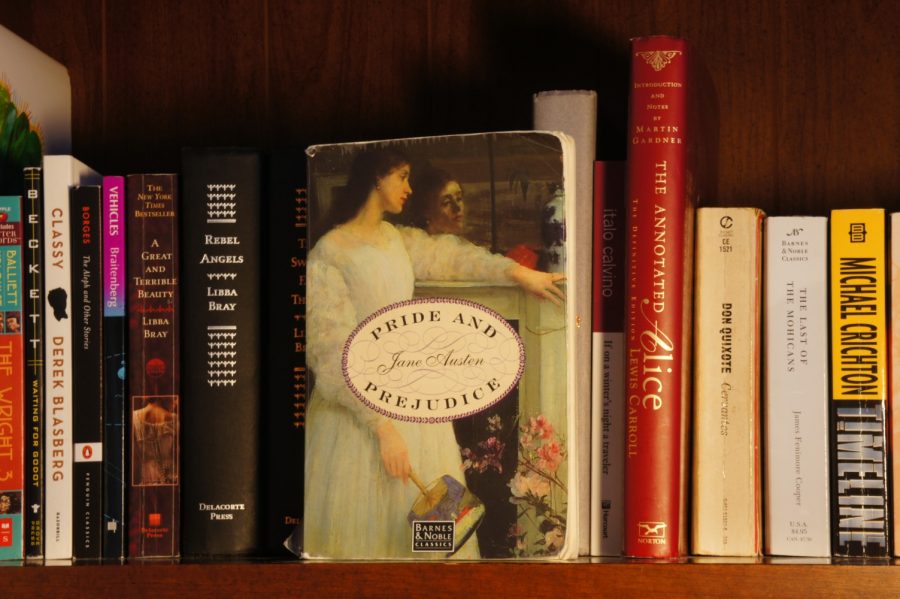
By AISHEE DAS
Staff Writer
Pride and Prejudice
by Jane Austen is considered as one of the best classic novels, loved by English teachers and feminists alike. The novel recounts the story of Elizabeth Bennet, a strong and intelligent girl who refuses to marry for money. While Elizabeth’s unwavering and determined attitude might serve as a great example for girls, it sends the wrong message in the context of the entire novel.
Throughout the novel, we easily like Elizabeth because of her three-dimensional personality, which stands out in comparison to her single-minded sisters and mother. Our first impression of Mrs. Bennet, Elizabeth’s mother, is created through a dialogue between her and her husband, Mr. Bennet. She is in a frenzy over the rich and single Mr. Bingley, who is currently visiting their county. She believes that if Mr. Bennet introduces himself to Bingley, Bingley may choose to marry one of her five daughters. We immediately cringe at her outlandish antics and continue to do so throughout the novel.
Pride and PrejudiceAusten never delves into Mrs. Bennet’s character or explains why she is the way she is with the emotion her character deserves.
takes place in a time when men were in charge of all property, and women were useless if they were not married. In the Bennet house, there are five daughters and no sons, which means that if Mr. Bennet suddenly died, the five daughters and Mrs. Bennet would lose everything to their next male relative. While Austen does brief upon this knowledge, we never see the side of Mrs. Bennet who is fearful that her daughters will live in poverty if her aging husband dies and wants her daughters to marry rich so they can be protected. Instead, Austen paints a crazy woman with no depth, who just wants riches and opulence for herself.
This is unfortunately the case for many of the characters in this novel. Lydia Bennet and even the “other good Bennet sister,” Jane Bennet, are all extremely one-dimensional and show no development. We hate Lydia for making bad decisions and being extremely proud of them, but we forget that she is only a 15-year-old girl who was seduced by a man twice her age. Jane Bennet is kind and caring but shows no character development so even if we like her, we do not connect with her.
Austen’s narrow definition of a “good” woman only fits Elizabeth. Every other girl in the novel is dumb, naïve, too kind, crazy or callous. With this view, we are taught that there is only one type of woman that we should aspire to become–an inherently problematic idea.
We are taught to admire and aspire to be the strong and leading girl, but not everyone can live up to that ideal. Some girls will become needy, naïve or callous, but it is important to realize that every girl and every person has a story. Knowing someone’s story helps you connect to and respect them. By constantly writing alternate personality types as flat, we are enforcing the idea that the only girls who deserve respect and admiration are the ones who are strong-minded.














